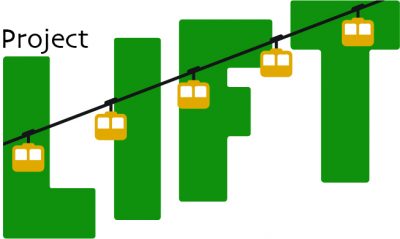
Web cookies (also called HTTP cookies, browser cookies, or simply cookies) are small pieces of data that websites store on your device (computer, phone, etc.) through your web browser. They are used to remember information about you and your interactions with the site.
Session Management:
Keeping you logged in
Remembering items in a shopping cart
Saving language or theme preferences
Personalization:
Tailoring content or ads based on your previous activity
Tracking & Analytics:
Monitoring browsing behavior for analytics or marketing purposes
Session Cookies:
Temporary; deleted when you close your browser
Used for things like keeping you logged in during a single session
Persistent Cookies:
Stored on your device until they expire or are manually deleted
Used for remembering login credentials, settings, etc.
First-Party Cookies:
Set by the website you're visiting directly
Third-Party Cookies:
Set by other domains (usually advertisers) embedded in the website
Commonly used for tracking across multiple sites
Authentication cookies are a special type of web cookie used to identify and verify a user after they log in to a website or web application.
Once you log in to a site, the server creates an authentication cookie and sends it to your browser. This cookie:
Proves to the website that you're logged in
Prevents you from having to log in again on every page you visit
Can persist across sessions if you select "Remember me"
Typically, it contains:
A unique session ID (not your actual password)
Optional metadata (e.g., expiration time, security flags)
Analytics cookies are cookies used to collect data about how visitors interact with a website. Their primary purpose is to help website owners understand and improve user experience by analyzing things like:
How users navigate the site
Which pages are most/least visited
How long users stay on each page
What device, browser, or location the user is from
Some examples of data analytics cookies may collect:
Page views and time spent on pages
Click paths (how users move from page to page)
Bounce rate (users who leave without interacting)
User demographics (location, language, device)
Referring websites (how users arrived at the site)
Here’s how you can disable cookies in common browsers:
Open Chrome and click the three vertical dots in the top-right corner.
Go to Settings > Privacy and security > Cookies and other site data.
Choose your preferred option:
Block all cookies (not recommended, can break most websites).
Block third-party cookies (can block ads and tracking cookies).
Open Firefox and click the three horizontal lines in the top-right corner.
Go to Settings > Privacy & Security.
Under the Enhanced Tracking Protection section, choose Strict to block most cookies or Custom to manually choose which cookies to block.
Open Safari and click Safari in the top-left corner of the screen.
Go to Preferences > Privacy.
Check Block all cookies to stop all cookies, or select options to block third-party cookies.
Open Edge and click the three horizontal dots in the top-right corner.
Go to Settings > Privacy, search, and services > Cookies and site permissions.
Select your cookie settings from there, including blocking all cookies or blocking third-party cookies.
For Safari on iOS: Go to Settings > Safari > Privacy & Security > Block All Cookies.
For Chrome on Android: Open the app, tap the three dots, go to Settings > Privacy and security > Cookies.
Disabling cookies can make your online experience more difficult. Some websites may not load properly, or you may be logged out frequently. Also, certain features may not work as expected.

The project will pursue these goals through (a) engaging teachers in summer professional development involving the development/enhancement of clusters of content-based lessons that support discourse and critical and creative thinking; (b) classroom observations and ongoing conversations around the implementation of lesson clusters; (c) collection of district-administered student achievement data in reading and mathematics as well as brief project-developed assessments. In each participating school, Project LIFT will invite participation from interested teachers in grades 1-3. All research activities will be conducted under approvals from the University of Connecticut Institutional Review Board and any district-specified requirements. Participating teachers will receive stipends for training/participation.
Expected benefits of the project include professional learning opportunities for teachers, access to project-provided resources, and student engagement in additional learning opportunities that promote discourse and critical and creative thinking. We also expect that the project will contribute to school efforts to increase identification and participation of students from typically underserved populations in advanced learning programs.
Students with high academic potential are more likely to demonstrate high-potential behaviors while engaged in instruction that encourages such response. Project LIFT engages teachers in close examination of instruction linked to particular standards, with an eye to observing and developing high-potential behaviors.
Our Goals:
Goal 1. To enhance teacher understanding of the types of behaviors that may be indicative of high potential in the primary grades, particularly in underserved populations.
Goal 2: To promote teacher capacity to support advanced-level learning through engagement with materials that promote student discourse, higher-level thinking, and demonstration and development of high-potential behaviors.
Goal 3: To support student achievement in core content areas through instructional approaches that emphasize discourse, higher-level thinking, and other key evidence-based practices.
Goal 4: To disseminate project resources for professional development and replication.